Many Iowans leave their precinct caucuses after the presidential selection process, but the caucuses also provide an opportunity for politically-engaged people to influence their party’s platform. If you bring a resolution to your precinct caucus, you have a good chance of getting it approved and sent to the county platform committee, which decides what will come to a vote at the county convention.
Little-known fact for those who want to exercise this option: platform resolutions should be written in a different format from other political resolutions you may have read. Follow me after the jump for details and examples of resolutions you can bring to your caucus on Monday night.
Resolutions adopted by legislative bodies usually begin with several “Whereas” clauses, followed by one or more “be it resolved” clauses.
In contrast, party platform resolutions should be drafted with “we support” or “we oppose” language. Lots of resolutions in the “whereas/be it resolved” format sail through the precinct caucuses. However, before the county convention, someone on the platform committee will rewrite them to conform to the “we support” or “we oppose” format. That person may make other editorial changes, so if you want to avoid any possible distortion of your idea, it’s best to draft your resolution in a way county committees can accept with no rewriting.
Platform resolutions can be short, like the one the Justice Not Politics coalition encouraged Iowans to bring to their precinct caucuses in 2012:
We believe in a fair and independent judiciary, which is accountable to the Constitution and the law, not politicians and special interests.
We support Iowa’s system of selecting judges based on merit, not political appointment or partisan election.
Or resolutions can provide more background supporting the position, as with several I’ve enclosed below.
The Sierra Club’s Iowa chapter drafted eight proposals for Iowans to bring to their caucuses this Monday: some calling for action by the state legislature, others relating to federal policy on climate change, air quality, trade, and campaign finance reform.
The American Civil Liberties Union of Iowa has formatted its proposals to include lines for caucus-goers to write their names and contact information, which are required in order to submit a platform resolution. Note: the ACLU asks supporters not to “publicly state that they are representing the ACLU or that the resolutions are ACLU resolutions.” Scroll down to read the suggested language related to sentencing reform, decriminalizing marijuana, ending discriminatory police practices, and immigration policy.
In my experience, most platform resolutions are approved unanimously at Democratic precinct caucuses. In fact, in January 2008, our precinct chair asked for a motion to consider all resolutions as a bloc (“They’ll sort them out at the county”). It passed without objection, because people were exhausted by the time we had finished the division into presidential preference groups and realignment process. However, many precinct chairs will have each proposed resolution read aloud and voted on individually.
Feel free to post any platform resolutions you plan to bring to your caucus in the comments.
Draft resolutions related to civil liberties, posted by the ACLU of Iowa:
Proposed 2016 platform resolutions drafted by the Sierra Club’s Iowa chapter:
Click here to read resolutions that Planned Parenthood Action and the LGBT group One Iowa suggested before the 2008 or 2012 caucuses.
Here are two resolutions the non-profit 1000 Friends of Iowa encouraged members to bring to the 2012 caucuses. (I’m on the 1000 Friends of Iowa board of directors, but I didn’t draft these statements.)
Resolution: Support Sustainable Development
Because sprawling development and poor land use decisions have resulted in the rapid loss of valuable farmland and destruction of natural habitats;
Because Iowa’s existing urban areas and small towns contain an abundance of vacant lots, abandoned buildings, and brownfields, and redevelopment of those areas can build a healthy tax base, create jobs, and enhance community character;
Because of the rising costs of gasoline, depleting fossil fuels, increasing greenhouse gas emissions generated from driving, and limited transportation funding;
Resolution:
We support action by the Iowa legislature to limit taxpayer subsidies for new growth on farmland and natural areas, action by the Iowa legislature to encourage development and redevelopment inside our cities and towns, smarter planning and infrastructure investment, and action by the Iowa legislature to encourage transportation choices and principles of sustainable development.
Resolution: Reform Tax Increment Financing Laws
Because Tax Increment Financing was initially an effective tool for urban renewal in slum and blighted areas but has expanded greatly in Iowa during the past two decades;
Because TIF was intended to increase economic development and enrich the local tax base, yet its principal effect as used in many cities is to shift taxes from business to residential taxpayers, or from one city’s taxpayers to residents of neighboring towns and rural areas;
Because in some cases, TIF has been used to entice businesses to move from one city to another with no economic benefit to the region;
Because TIF has been used to subsidize development on Iowa’s world-class farmland;
Because TIF’s cost to taxpayers has increased substantially. In fiscal year 2011, Iowa’s General Fund reimbursed schools $45.9 million because of lost revenue relating to TIF districts. In Iowa’s top 32 TIF’d cities, 36.7 percent of their tax revenue went to TIF in fiscal year 2011;
Resolution:
We support reforming TIF laws to better reflect the original intent of the legislation: urban revitalization. The definition of “blight” for urban renewal TIFs should be clarified to ensure that TIFs are in true need of funds for urban revitalization. TIF funding needs oversight and TIF districts need to observe sunset dates and be dissolved. Farmland should not constitute “slum and blight”. Additionally, economic development and residential TIFs should be abolished.


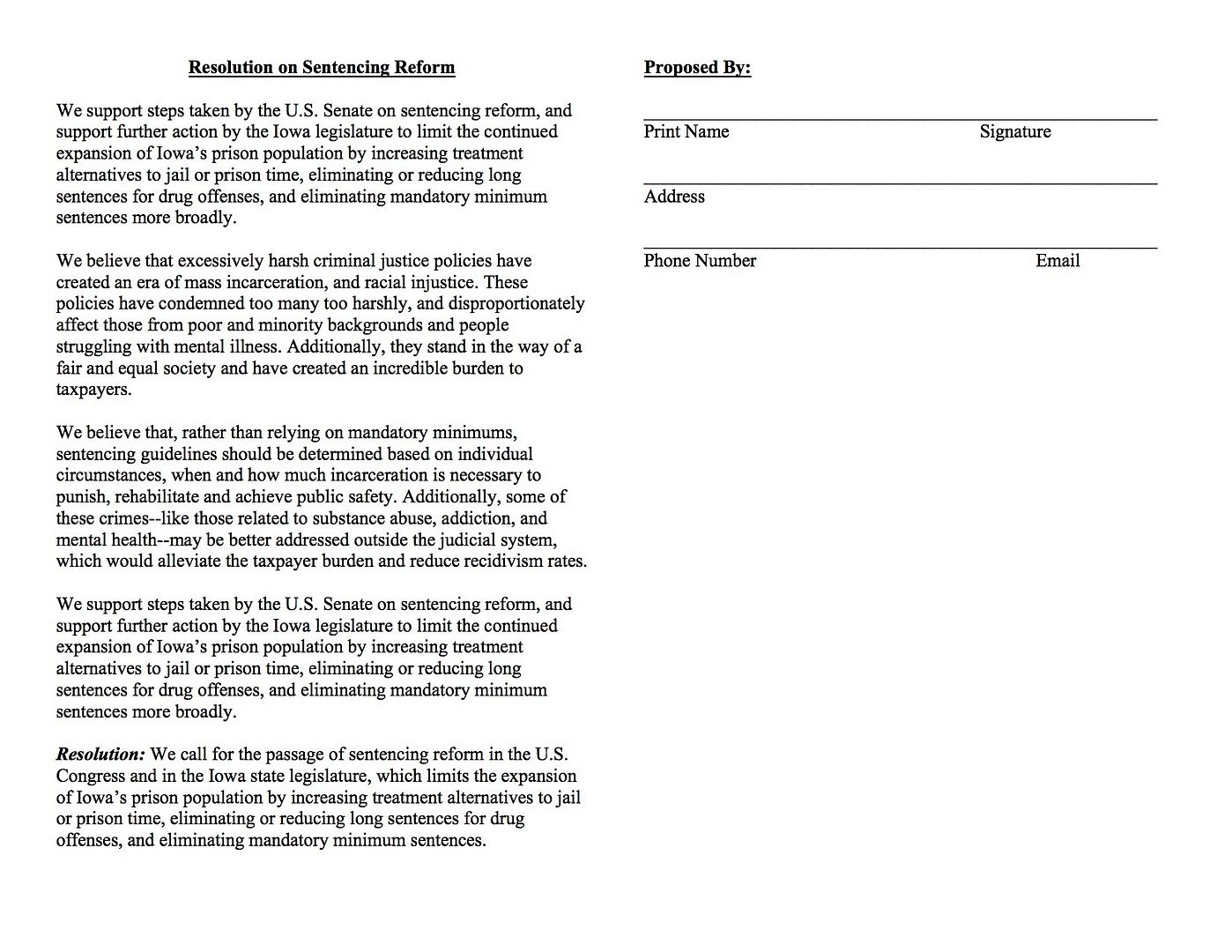
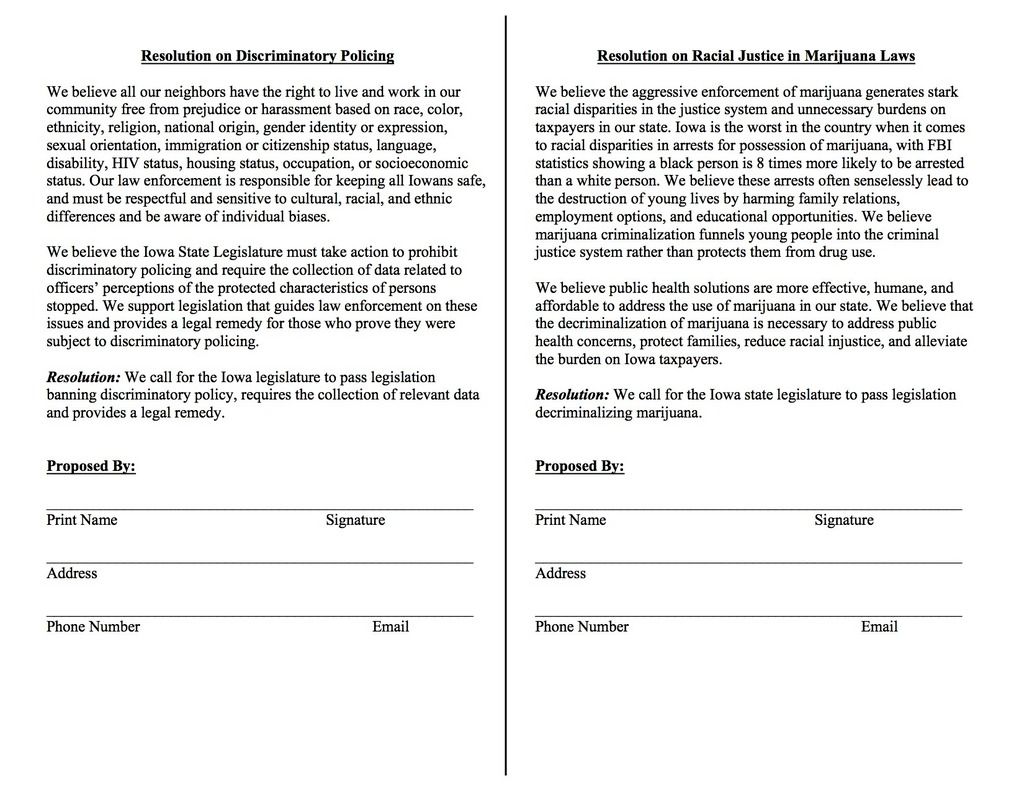
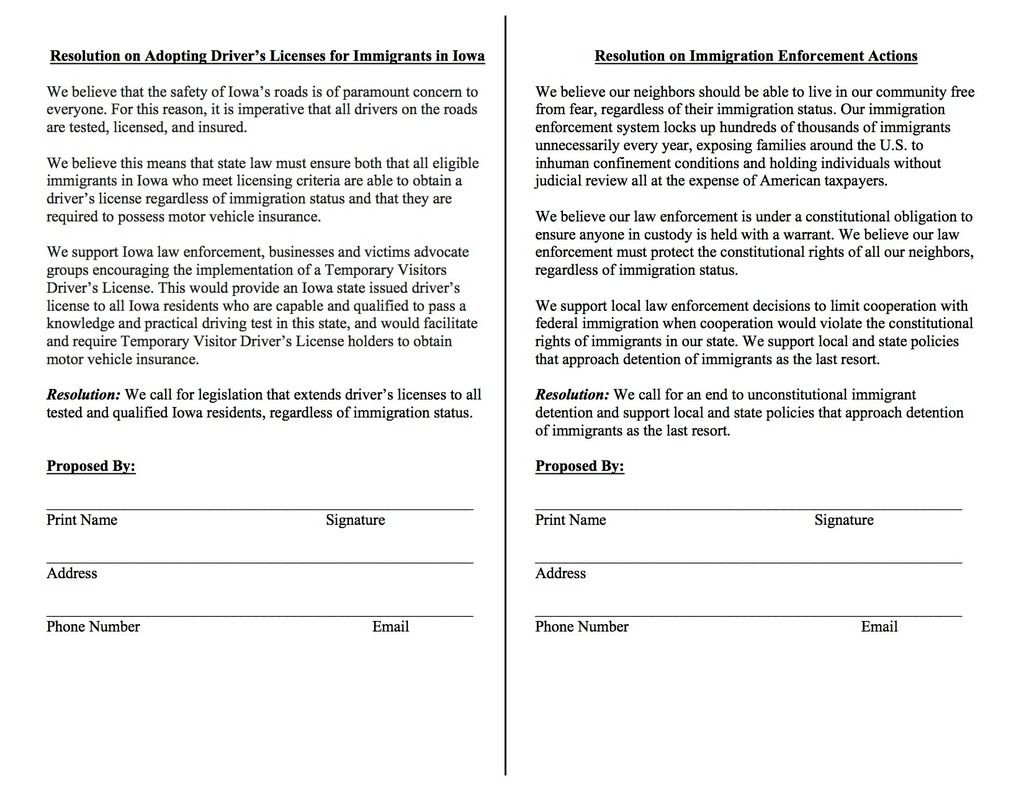
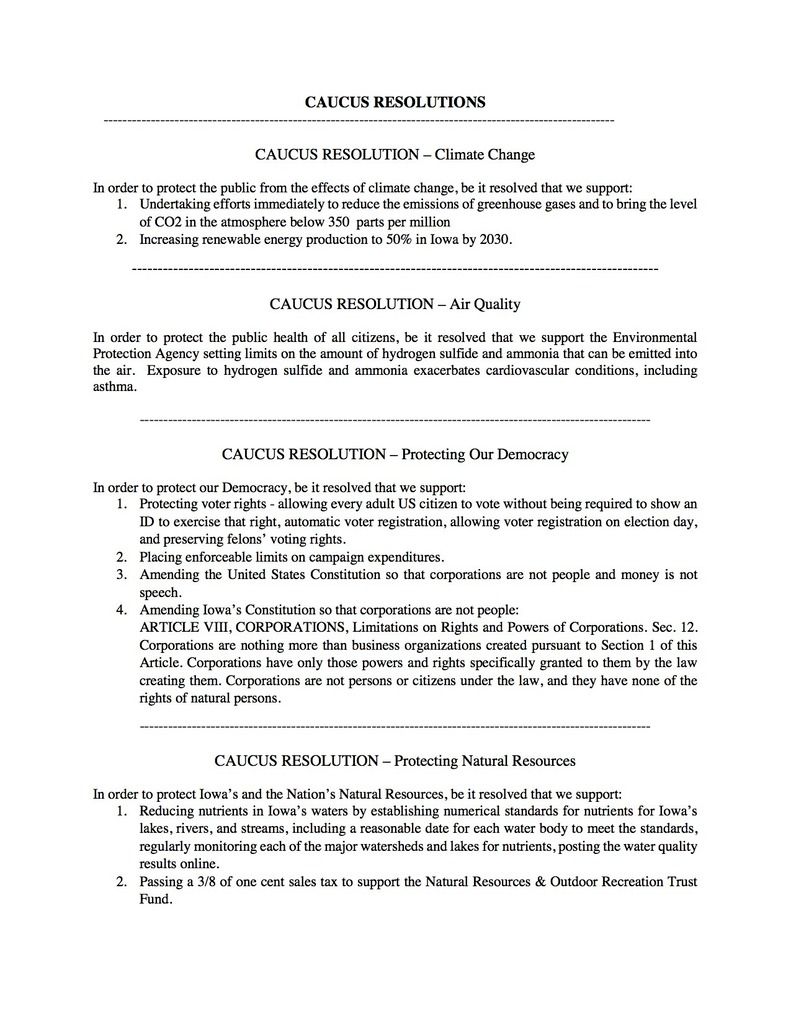
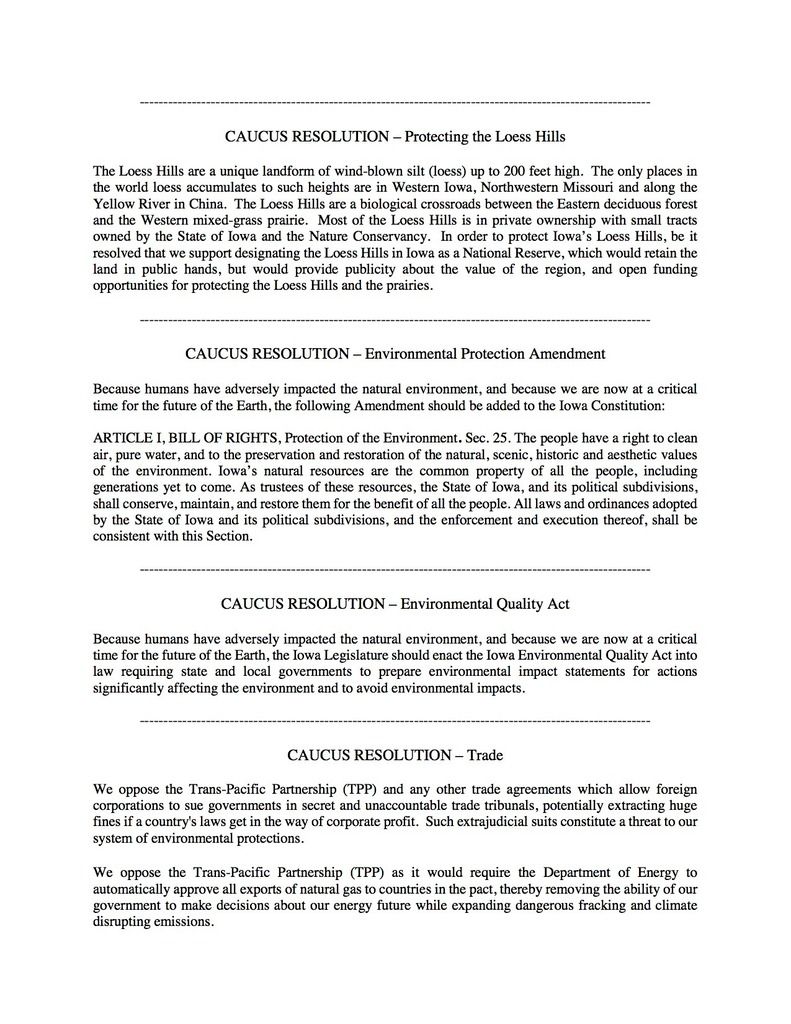
2 Comments
Two short resolutions on climate change
Because, we recognize that global warming is real and that resulting climate change is causing serious problems that are likely to get worse
Resolved, we support efforts to reduce heat-trapping greenhouse gas emissions and to adapt and mitigate expected consequences of climate change.
—–
Because, heat-trapping carbon pollution from fossil fuel consumption is the primary cause of the rapid increase in global warming currently and over the past century
Resolved, we support the President’s Clean Power Plan and additional efforts to reduce fossil fuel consumption, switching to alternative sources of energy plus energy conservation.
cocinero Thu 28 Jan 10:56 AM
thanks
Clear and concise.
desmoinesdem Thu 28 Jan 10:59 AM